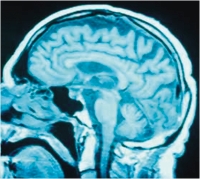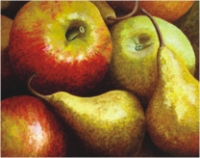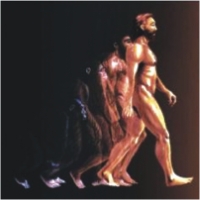SCIENCE FORUM
Debate rages over hobbit tooth

Does a tiny Indonesian hominid, purported to be 18,000 years old, really have a tooth filled by a dentist? That's the bizarre question raised by paleopathologists in Australia about the 1-meter-tall Indonesian "hobbit" with a grapefruit-sized brain discovered in 2004. If the claim is true the hobbit, named homo floresiensis (after the island Flores on which the bones were found), cannot be an ancient species of human as its discoverers maintain. But experts continue to disagree. While some believe such tiny-brained hominids made tools and moved out of Africa much earlier than thought, others argue that the hobbit was a modern human suffering from microcephaly or some other growth disorder.
Blind mice see the light

Blind mice have been made to sense light by inserting a protein derived from algae into their eyes. A similar method could one day be used to treat certain forms of blindness in humans, the researchers hope. The light-sensitive protein is used by algae to sense light for photosynthesis. Some researchers are interested in using these proteins to replace damaged or missing photoreceptors in human eyes, including the late stages of a relatively common form of blindness: age-related macular degeneration. At present, there are no cures for such patients.
Raindrops on roses

Behind the natural beauty of a rosebud covered in dew drops lies a decades-old mystery: why don't the tiny droplets fall off, even when the flower is turned upside down? The beading of water droplets on natural materials is not a rare thing. But on many flowers and leaves the droplets slide off with the slightest tremble, taking dust and small insects off with them. The effect is known by biologists as 'self cleaning' and has been well studied by researchers keen to make better water-repellent materials. Now researchers have unpicked the secrets of the rose's trick, and can replicate it in a man-made material.
Religion a figment of the imagination?

Humans alone practice religion because they're the only creatures to have evolved imagination. That's the argument of anthropologist Maurice Bloch of the London School of Economics. Bloch challenges the popular notion that religion evolved and spread because it promoted social bonding, as has been argued by some anthropologists. Instead, he argues that first, we had to evolve the necessary brain architecture to imagine things and beings that don't physically exist, and the possibility that people somehow live on after they've died.
Black holes reveal more secrets

Scientists say they have unlocked some of the secrets behind black holes, the gravitational fields known for sucking up light and stars from the Universe. In a report in the journal Nature, US researchers say they have worked out how black holes emit jet streams of particles at close to light speed. The Boston University team say the streams originate in the magnetic field near the edge of the black hole. Despite the fact that it is probable that a black hole lurks at the centre of our Milky Way galaxy, astronomers still know very little about these celestial monsters which vacuum up almost everything in their path, even light.
What does your email address reveal?

Think twice about the email address you pick: it may speak volumes about your personality, say researchers at the University of Leipzig in Germany who asked a panel of 100 students to guess the personalities of 600 teenagers simply by looking at their email addresses. The panels' guesses agreed most with a personality survey the teenagers had completed when it came to qualities like openness, conscientiousness and narcissism, and diverged most on the trait of extroversion. Addresses that gave away personality often contained full stops, numbers or a name that was obviously not genuine.
Put away the apples and pears

For frustrated math students it may be a relief to realise that teaching methods meant to make math 'more relevant' may actually be making it harder to understand, US researchers say. In a study, students who were taught abstract math concepts fared better than those taught with real-world examples, such as story problems. Distracting students with extraneous details makes it hard for students to extract the underlying mathematical concepts and apply them to new problems, say research scientist at Ohio State University, whose study appears in the journal Science.
Calories linked to baby boys

A woman's diet around the time of conception may influence the gender of her baby, research suggests. The UK study suggests a high-calorie diet at this time - and regular breakfasts - might increase the odds of a boy. The researchers say the modern trend to opt for low calorie diets might explain why the proportion of boys is falling in developed countries. The study, by the Universities of Exeter and Oxford, appears in the Royal Society journal Biological Sciences.
Human line nearly split in two

Ancient humans started down the path of evolving into two separate species before merging back into a single population, a genetic study suggests. The genetic split in Africa resulted in distinct populations that lived in isolation for as much as 100,000 years, the scientists say. This could have been caused by arid conditions driving a wedge between humans in eastern and southern Africa. According to a report published in the American Journal of Human Genetics. |









